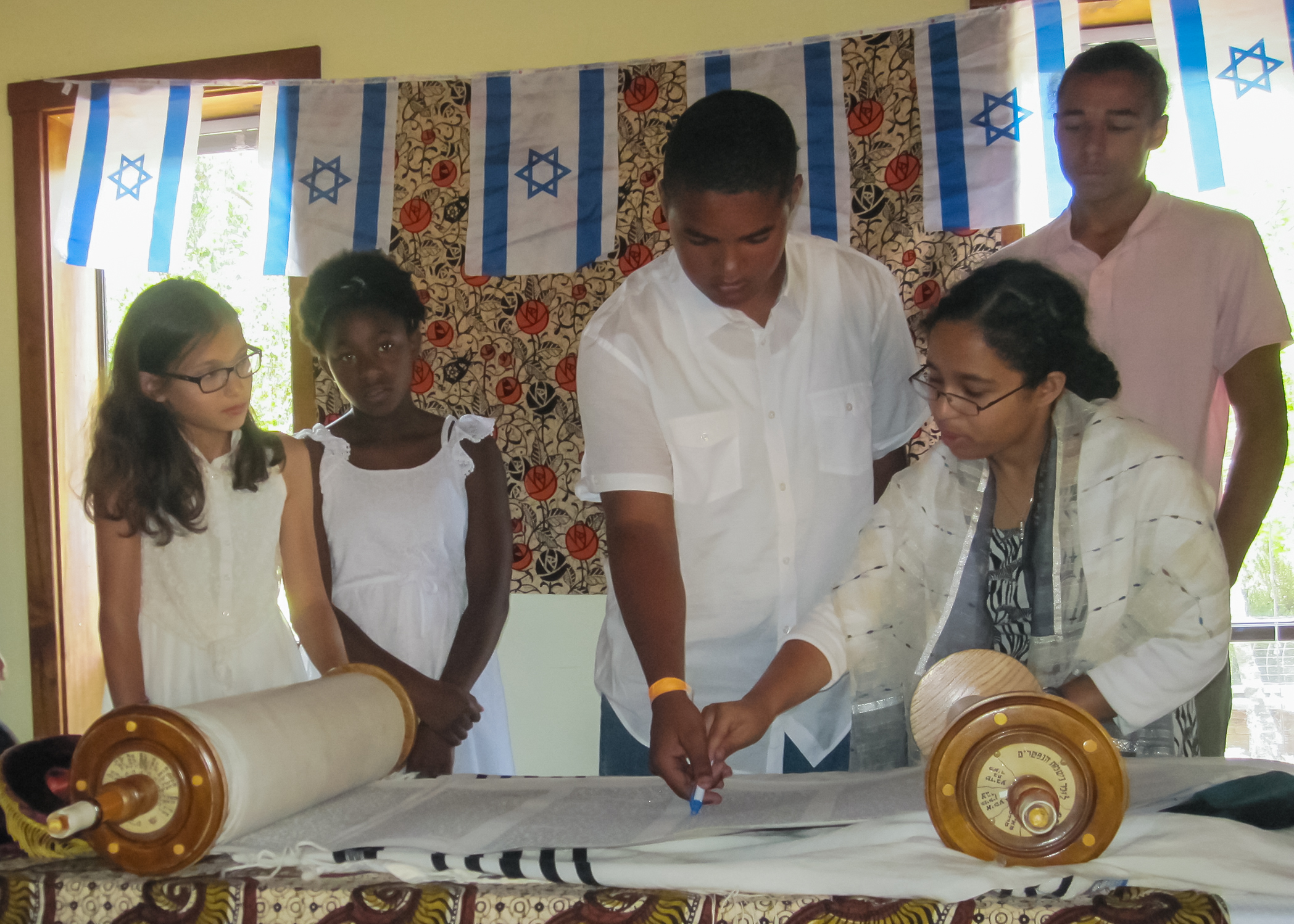 I have been preparing for my Bat Mitzvah since I was two. Being the daughter of two rabbis, Judaism has always been a huge part of my life. I have attended services every week. I helped lead the Torah service while my mom held me on the bimah as a toddler. I learned things like Torah and Haftorah early on; my dad is the head of our Hebrew school. My family is very observant, so I also learned a lot about Jewish Law.
I have been preparing for my Bat Mitzvah since I was two. Being the daughter of two rabbis, Judaism has always been a huge part of my life. I have attended services every week. I helped lead the Torah service while my mom held me on the bimah as a toddler. I learned things like Torah and Haftorah early on; my dad is the head of our Hebrew school. My family is very observant, so I also learned a lot about Jewish Law.
I practically grew up at the synagogue with the members as one big extended part of my family. Since moving to Oklahoma City, I have attended services almost every week. It is wonderful, but it also comes with expectations. People around me often assume I know everything Jewish and count on me to help them get the answers in Hebrew School and about the Torah. I worried that I would need to lead the whole service by myself perfectly.
I always knew my Bat Mitzvah would be a meaningful moment, not just for my family and me but for the community that had loved me and supported me for years. I knew that whatever I did at my Bat Mitzvah had to be perfect, and it was, just not in the way I expected.
I expected my Bat Mitzvah to be in our big sanctuary with decorations such as music notes (I am a musical theater fan), instruments, and sheet music. I thought my family from Colombia and friends from school and camp would be everywhere. My family and I would worry about if we had enough food and chairs to seat and feed everyone. We would be trying to stretch the list of honors given out to participate in the leading of the service. But that’s not what happened.
Instead, COVID hit, and the plans fell apart. We spent months not knowing what would happen. Would we be in the sanctuary with all the people or online leading from home? As the date approached, all of our preparations were put on hold. I realized that what I had wanted and had planned for might not be what had happened. COVID kept changing things, so we waited. It felt like we were on a scale, able to tip either way. It was scary not knowing what would happen.
 In the end, we held the service in the tent the synagogue rented for the High Holidays. About 40 people attend in person, and dozens more attend online. We gave people treat bags instead of a sit-down lunch. Instead of the normal service, which includes Shacharit, the Torah Reading with seven aliyot plus the Maftir, and Musaf, we did a shortened service with Shacharit and just one aliyah in the Torah reading. It wasn’t what I had expected, but it ended up being incredibly meaningful to me.
In the end, we held the service in the tent the synagogue rented for the High Holidays. About 40 people attend in person, and dozens more attend online. We gave people treat bags instead of a sit-down lunch. Instead of the normal service, which includes Shacharit, the Torah Reading with seven aliyot plus the Maftir, and Musaf, we did a shortened service with Shacharit and just one aliyah in the Torah reading. It wasn’t what I had expected, but it ended up being incredibly meaningful to me.
Through this journey, I have learned a lot. I have felt the support of my family and the community. I connected with my Judaism on a much more personal level. But most of all, I realized that plans could be made, but no matter how they turn out, what you do connects you to your expectations.






